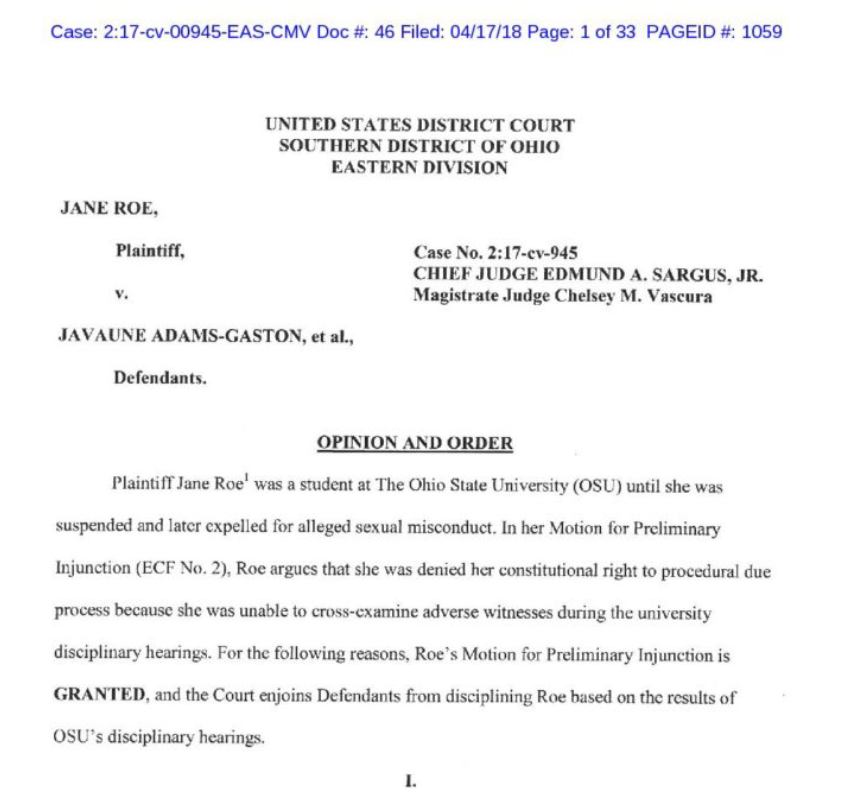
A federal judge in Columbus, Ohio has issued an injunction preventing the school from disciplining students who did not have the right to cross-examine their accusers.
Read the decision here.
The Ohio State University tried to expel a student for engaging in an allegedly nonconsensual sexual activity with other students on two separate instances. In one of the school hearings, the accusers did not appear and the hearing panel relied on their written statements. In another hearing, the accuser appeared but claimed to have no memory of the incident, so the panel relied on written statements from witnesses.
The student, represented by Engel & Martin, LLC, sued, alleging that Ohio State had acted against the right of students to cross-examine their accusers in serious discipline cases. The school argued that the investigatory process was sufficient. But the judge agreed with the student, and issued a preliminary injunction. The judge said:
Given the central role cross-examination has played as a truth-seeking device in our justice system, and given that Defendants have not identified any authority supporting their position, the Court cannot conclude that a pre-hearing investigative process, such as OSU’s, is a constitutionally adequate substitute for cross-examination.
“Cross-examination is important for both the accused and the accuser, because both sides have an interest in accurate and reliable outcomes,” Joshua Adam Engel, an attorney for Roe, told one reporter. “For hundreds of years we have recognized that cross-examination helps the finder of fact ‘get it right.'”
